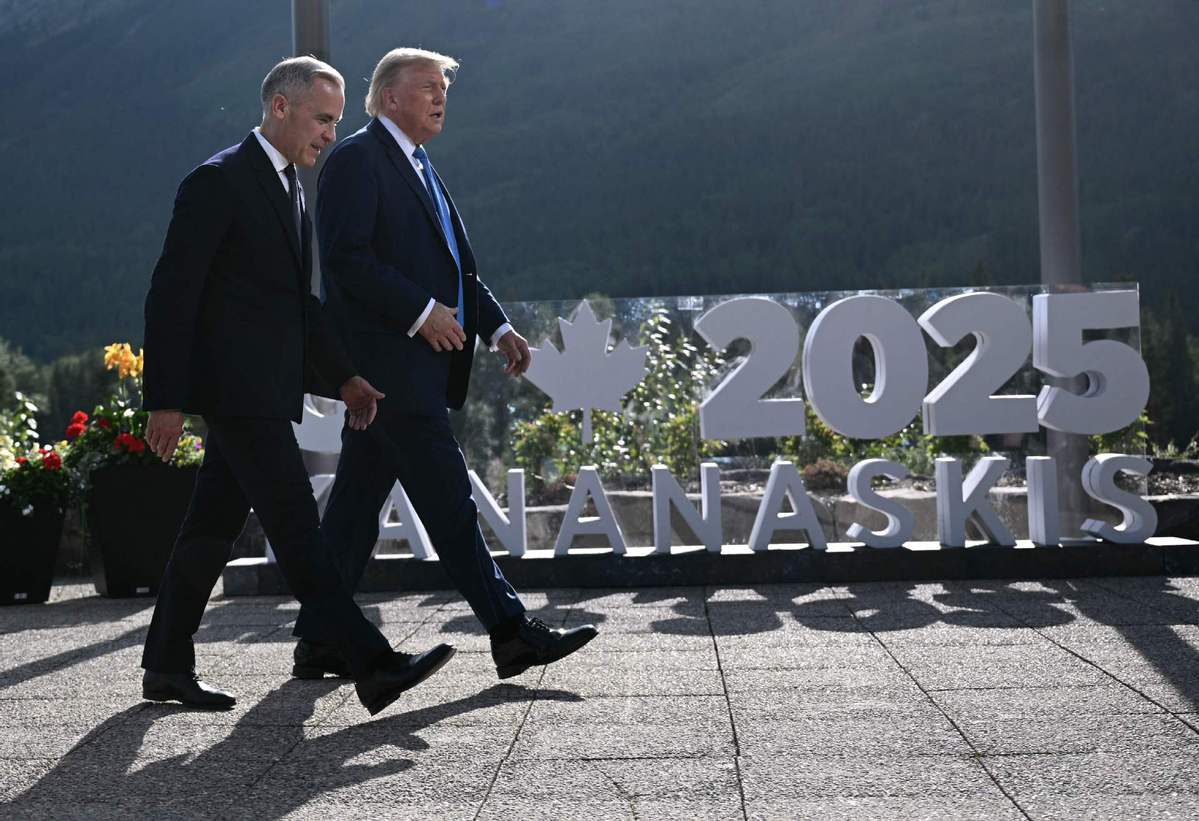Trade negotiations should not come at expense of the legitimate rights and interests of China: China Daily editorial


Although US President Donald Trump said "No, we can do whatever we want" when asked if his 90-day deadline was set in stone, his administration has apparently tried to reach a deal with some major trading partners as that day, July 9, draws near.
However, despite the palpable optimism expressed during the G7 Summit in Canada earlier this month, the US' trade talks with even some of its allies and partners seem not to be faring smoothly.
The US administration abruptly cut off trade talks with Canada on Friday over its tax targeting US technology firms, saying that it was a "blatant attack" and that it would set a new tariff rate on Canadian goods within the next week.
Canada plans to begin collecting a previously enacted digital services tax on US technology companies on Monday. Amazon, Meta, Alphabet's Google and Apple will all be hit, among others. The tax is 3 percent of the digital services revenue a company receives from Canadian users above $20 million in a calendar year, and the payments will be retroactive to 2022.
Calling Canada a "very difficult country to TRADE with", Trump warned that Canada will know the tariff that it will be paying to do business with the US within the next seven-day period.
The US has prepared similar retaliation against European countries that have imposed digital taxes, which were actually deliberated in the bloc much earlier than the US' tariff attacks as a measure to address the monopoly of the US internet companies. Even if the tariff war backdrop is taken into account, compared with the tariff attacks of the US, the anti-trust digital tariffs collected by the EU and Canada are much milder, with the purpose of addressing their long-term deficits in trade of services with the US.
In other words, the US administration's strong response to Canada and the EU on the issue vividly underscores its double standard in handling economic and trade relations with other economies: the US cannot be treated the way it treats others.
That the US leader openly lashed out at Spain on Wednesday, saying it would have to pay "twice as much" in tariffs after Madrid refused to meet NATO's 5 percent spending target, clearly indicates his administration treats tariffs as leverage to tackle not only trade issues but also issues in other sectors.
It was against that backdrop that the Chinese Commerce Ministry said while China welcomes the peaceful resolution of trade disputes, it firmly opposes any party sacrificing China's legitimate interests in exchange for tariff relief from the US.
The ministry warned that if this happens, China will never accept it and will resolutely counter it to safeguard its legitimate rights and interests.
China has always attached great importance to maintaining the stability and security of the global industry and supply chains, and is accelerating the review of rare earth-related export license applications in accordance with laws and regulations.
Since some major US trading partners, including Canada and the EU, have previously proposed to play the "China card" in their respective trade negotiations with the US, a party that seems obsessed with an across-the-board dealmaking with different parties, China's call and warning are fully justified.
China has never tried to include issues related to other economies in its economic and trade talks with the US in a bid to strive for a trade-off with the latter. The Sino-US economic and trade ties don't target any third party. No other economy should try to make its trade ties with China a bargaining chip in its trade talks with the US.
In the face of the tariff war the US is waging against the rest of the world, which is a typical unilateral bullying practice, countries should join hands to defend the multilateral trading system and the normal international trade order. It doesn't make sense for any of the "reciprocal" tariff victims to sacrifice each other to try and curry favor with the starter of the trade war.
As the Commerce Ministry spokesperson said, practice has proved that only by firmly defending principled positions can countries truly safeguard their legitimate rights and interests. So all parties should stand on the side of fairness and justice and firmly defend the international economic and trade rules and the multilateral trading system.
































